REVIEW : Thymesia (PC)
For a small independent team, the first step in the digital entertainment industry is always a delicate matter: balancing aspirations, possibilities and resources is certainly no small feat, especially when aiming to set foot in one of the more complex sub-genres. of the gaming landscape, that of souls like. As if that were not enough, the debut title of the Taiwanese team Overborder Studio has to deal with the incredible resonance of an excellent source of inspiration, Bloodborne which represents one of the most important stages of the creative path of From Software. Developed with the support of Team 17, Thymesia is therefore preparing to make its debut on the market with a production driven by objectives that are anything but simple, and perhaps too ambitious for the actual skills of its authors.
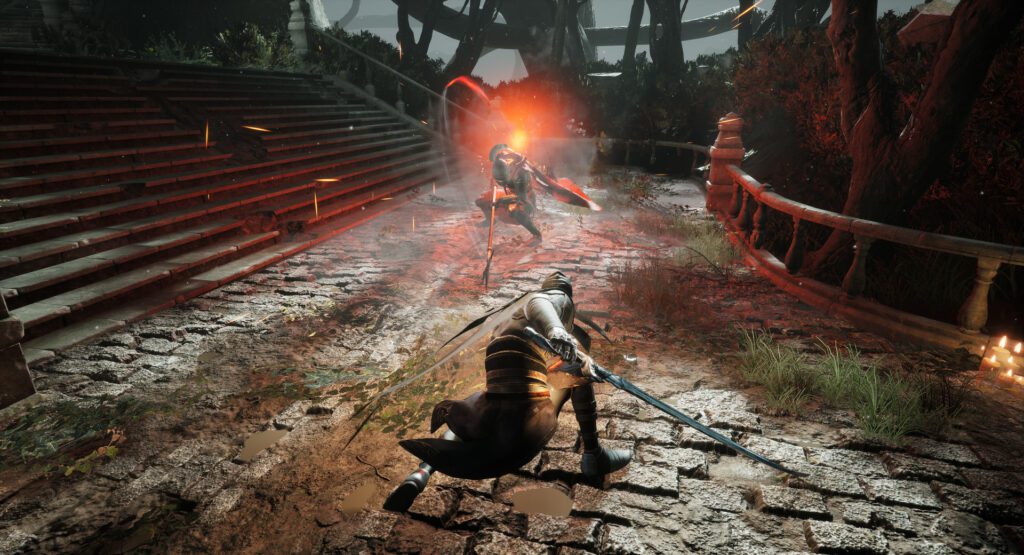
The fall of Hermes
Perched among the tree giants of a timeless forest, in a dense tangle of crepuscular shades, the kingdom of Hermes is but the pale shadow of a glorious past. Once considered the cradle of alchemy, the very symbol of this medicinal art, the capital has fallen victim to a mysterious plague that has transformed it into a melting pot of unspeakable horrors, the source of corruption that threatens to devour the world entire. The blind arrogance of the alchemists, consumed by an insatiable craving, made the answer to all the evils of the realm become the cause of its undoing, unleashing a pestilence far worse than that which had made Hermes a beacon of hope for the whole continent.
Now the fate of the kingdom weighs on the shoulders of Corvus, a lone warrior with extraordinary abilities: the protagonist is the result of an alchemical experiment which – in addition to freeing him from the disease – transformed him into a prodigious man-raven hybrid, can face the monstrosities lurking beyond the confines of Philosophers’ Hill (the central hub of Thymesia), one of the few places that escaped the disaster.
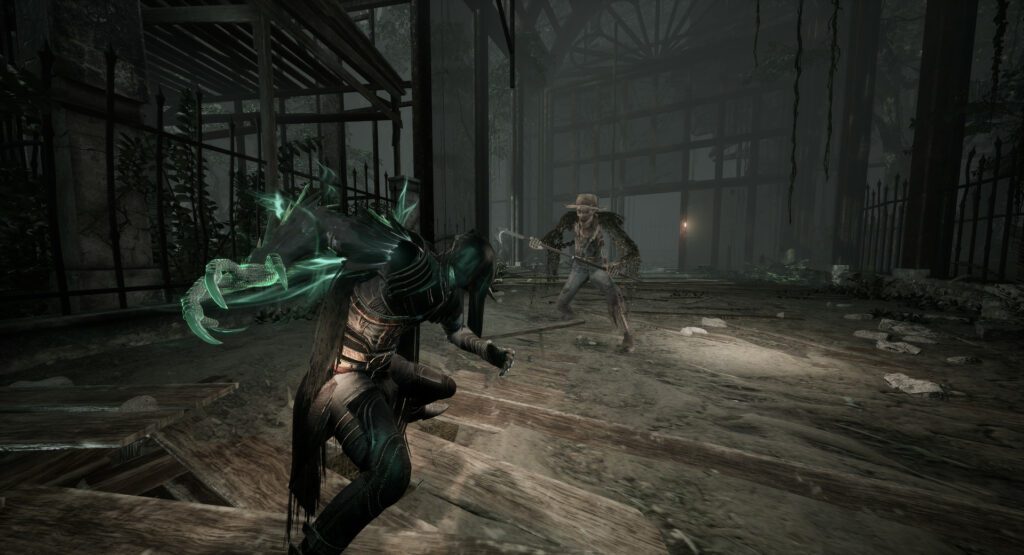
In reality, Corvus has already accomplished his saving mission, but his fragmented memories prevent him from remembering the formula for distilling the panacea requested by Aisemy, a young researcher who survived the fall of Hermes. Each of the stages of our journey in Thymesia, therefore, is nothing more than the echo of one of Corvus’ memories, scattered along a narrative path that, in line with the tradition of souls like, winds between environmental suggestions and cryptic annotations, from the use to reconstruct the “lore” of the game world piece by piece. As intriguing as it is, however, the “mnemonic” plot hatched by the developers of OverBorder Studio is quite erratic and pretext, sometimes even redundant. Sensations that emerge also avoid any comparison with the main source of inspiration of the title, or that Bloodborne which still represents one of the best works of From Software. While offering the audience a large range of endings, all subject to a precise choice to be made immediately after the last battle, the epilogue of Thymesia also appears rather corrective and anti-climatic, in the face of rather limited longevity (6-8 hours).
Although the duration of a videogame adventure always has a relative value in the critical balance, in this case, the content baggage seemed a bit skimpy to us, even regarding the bosses placed in the path of the player. The beating heart of a title like Thymesia remains the gameplay, which fortunately represents the main strength of the Taiwanese team’s production, net of some lightness of certain importance.
Gameplay that is as furious as it is flawed
If Bloodborne is the thematic and stylistic point of reference for the action RPG of Overborder, the same can also be said for its playful component, especially for what concerns the rhythm and aggressiveness of the combat system. studio. Armed with a sabre and dagger, Corvus is an agile and ferocious fighter, capable of darting through enemies to overwhelm them with a hail of slashes.
Already at this point, Thymesia’s first flash of identity emerges, linked to the protagonist’s attack routines: the quick blows performed with the blade (associated with the right backbone) affect the health of the opponents but the damage inflicted is not necessarily permanent. The amount of life subtracted with each sabre is replaced by an equivalent amount of “wounds”, a secondary value that will regenerate over time unless the “heavy” attack of Corvus is used – with the right trigger – to consume permanently. the indicator. Thanks to his nature as a hybrid, the protagonist can unleash the claws of a bird of prey with which to tear apart Hermes’ abominations, pushing them on the border between life and death.
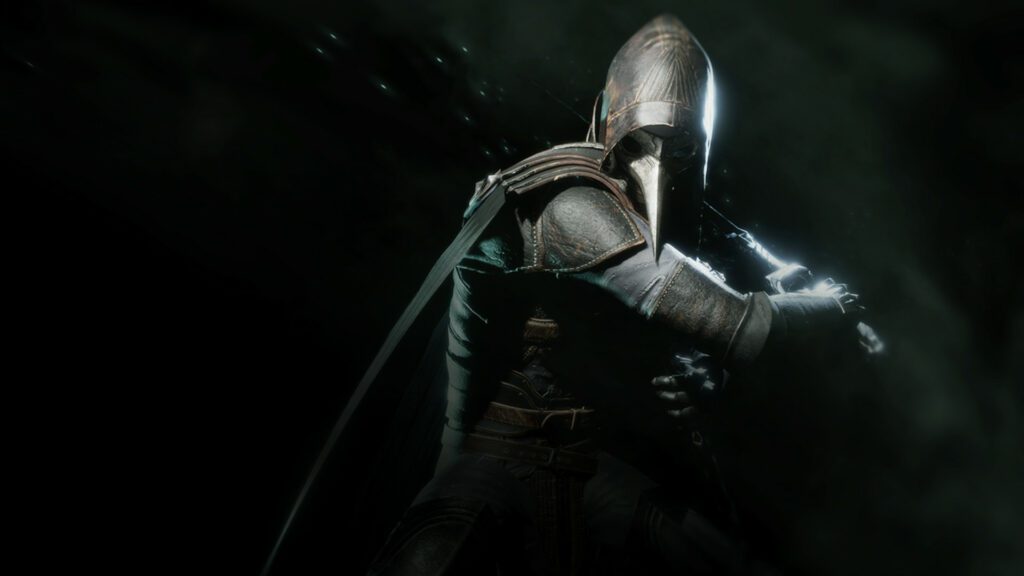
At this point, the enemies will enter a stunned state that will offer players two options to end the fight: using the blade it will be possible to perform a brutal execution while charging the blow with the Corvus claw will be able to kill them and absorb their Pestilential Weapon, a special ability (usable only once) inspired by the opponent’s moveset. The charged attack can be performed, albeit with non-lethal results, even in the middle of the fight, but it is a too risky strategy. This is because the claw in question imposes a meticulous calculation of times and distances, does not ensure the staggering of the enemy and therefore makes it difficult to conclude the assault without receiving some blows.
A soul like in an identity crisis
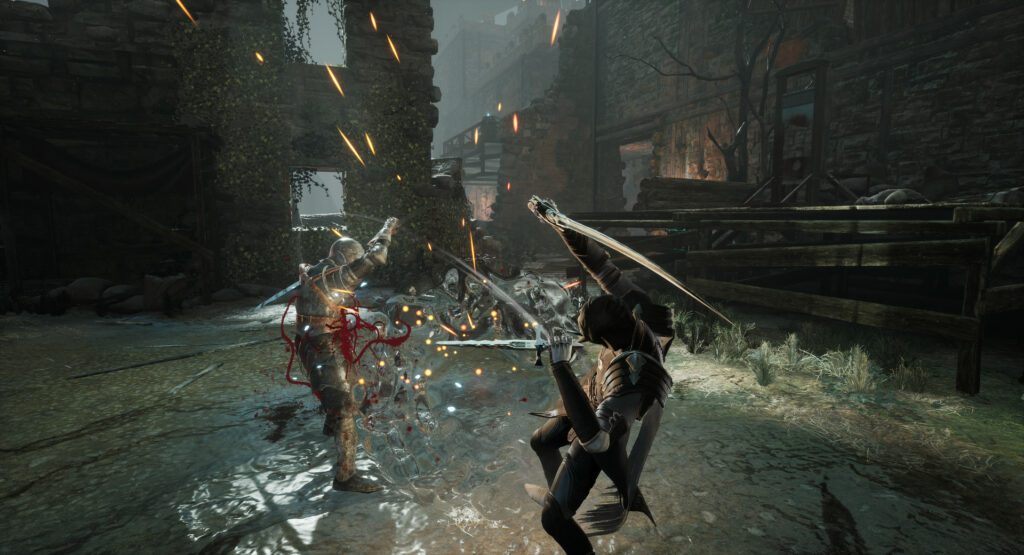
To make the limitations of the title even more evident, we find an aesthetic that struggles to manifest a truly convincing stylistic identity. Whether it’s defining the horrid features of a boss (the secondary ones are enhanced base enemies), or shaping Hermes’ pestilential landscapes, the art direction is mostly unable to fully satisfy the senses of the players, limiting themselves to rehash without too much conviction the typical features of the congeners. Even from a structural point of view, Thymesia’s scenarios do not show off any particular creative flashes, although their navigability generally stands at good levels. Leaving aside the characterization of the protagonist, rather valuable, the design of the enemies appears equally generic, and we have also noticed some significant fluctuations on the side of artificial intelligence. Let’s be clear: graphically speaking, the one assembled by Overborder is not an unpleasant product, especially if you consider that it is the first work of a team composed of just seven people, but none of its constituent elements stands out for quality. The use of effects is pleasant, as is the choral rendering of the lighting, but in both cases, more or less marked bending can be seen, and the same is true for texturing and polygonal modelling. Moving on to the sound sector, Thymesia can count on a fair number of songs capable of adding a pleasant shade of epicness to the deeds of the brave Corvus, especially during the boss fights. As for the production performance profile, with the test configuration, we had no great difficulty in reaching the 60 fps threshold in 4K, setting all settings to maximum and activating the FSR with ultra presets.

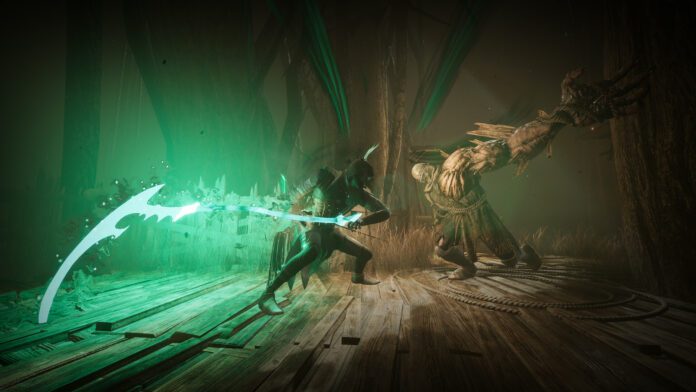




![Red Dead Redemption 2 XBOX Series X Gameplay [4K60FPS] – Visiting Sheriffs Office](https://www.hgunified.com/wp-content/uploads/2022/12/maxresdefault-117-100x70.jpg)







